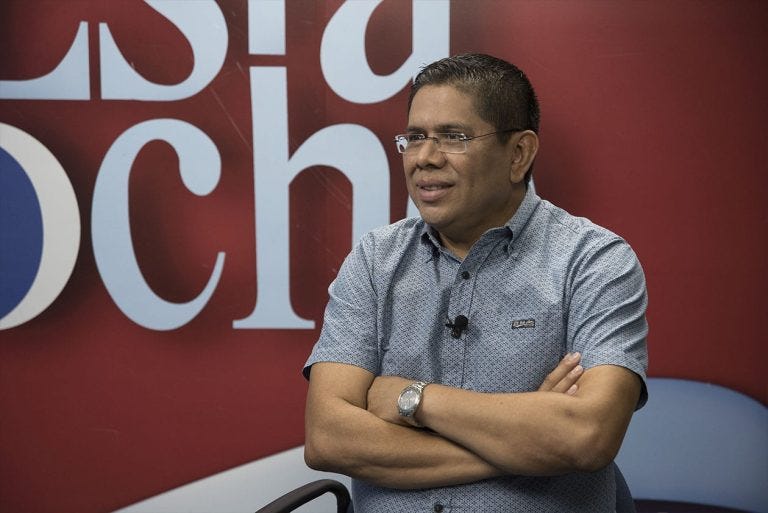Dissident Spotlight: Miguel Mendoza Urbina
A sports commentator became a prominent dissident when he used his platform to speak out against the state's violence against protesters.

Sports journalists are rarely accused of “conspiracy to undermine national integrity” or “disseminating false news.” But as PEN America notes, Miguel Mendoza Urbina spent two years in prison for criticizing Nicaragua’s government before a large group of dissidents was released from prison and deported to the United States in February 2023.
In an interview with the Committee to Protect Journalists (CPJ), Urbina explained how he made the leap from sports to politics:
“When the protests of 2018 broke out, I remember opening my Facebook page. I realized followers were telling me, ‘You are talking about sports while so many people have been killed, most of them young college students.’ That’s when I became convinced that it was shameful to keep talking about sports when the country was bleeding. That was my before and after.”
In 2018, Nicaraguans protested changes to social security benefits, which increased taxes but decreased benefits. Police retaliation killed 300-500 and injured over 2,800 people. It was a bloody turning point for Urbina.
He already had a large following from his sports program, so he posted daily criticisms of the government. Urbina accused a stadium of operating as a paramilitary base for some of the armed men who killed young protesters. He and his wife were also assaulted by masked men who were likely paramilitaries in December 2018.
Flimsy Pretext is Part of the Playbook
One of the striking features of Urbina’s arrest that isn’t accessible in many dissident cases is the litany of bizarre accusations the police made against him. Urbina remembered in his CPJ interview:
“…they accused me of belonging to an organized crime gang. My lawyer asked what the gang was, and I realized that the gang was made up of [U.S.] Congresswoman María Elvira Salazar (R-FL 27), the former [U.S.] Secretary of State Mike Pompeo, and the [former] U.N. human rights official and Chilean president [Michelle] Bachelet. I belonged to that gang because I retweeted them.”
Nicaragua’s government leaned into an old trope blaming outside influence for their country’s dissent. Instead of the current government being at fault, insidious foreigners, in some cases “colonizers,” ran the country into the ground, necessitating the dictator’s harsh reprisals against his citizens.
But the pretext is important for dictators. It helps them resemble the type of government that many of their people aspire to. Even a flimsy pretext for human rights crackdowns is a vital tool for legitimacy.
It’s one of many reasons why being outraged at poor reasoning from our leaders is so important. They should be able to defend their actions with details from a shared reality. Allowing their arbitrary decisions to rule our lives is the kind of tyranny countries like the United States fought for centuries to end.

